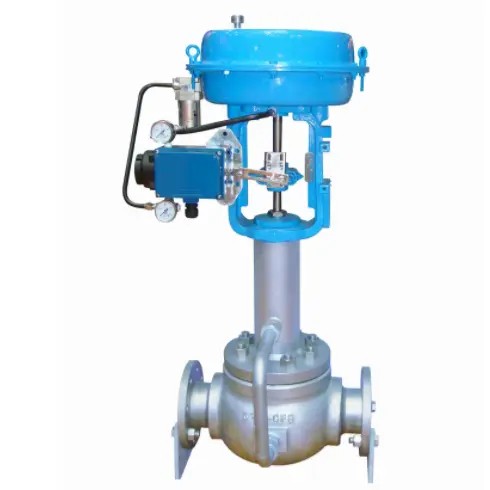


Steam Jacketed Control Valves: Ensuring Precise Temperature Control in Industrial Processes
Steam Jacketed Control Valves: Ensuring Precise Temperature Control in Industrial Processes
Steam jacketed control valves are specially engineered to meet the rigorous demands of temperature-sensitive industrial applications. They are essential where maintaining consistent temperature control is vital for operational efficiency, safety, and product quality. Industries dealing with fluids prone to crystallization, solidification, or viscosity changes rely on these China Control Valves to ensure smooth and uninterrupted processing.
Many industrial processes—such as those in food processing, petrochemical, and chemical manufacturing—require fluids to be kept within a narrow temperature range. When fluids like oils, waxes, chemicals, or food ingredients cool below their crystallization or solidification points, they can thicken or solidify, causing blockages and reducing flow efficiency.
Steam jacketed control valves solve this problem by surrounding the valve body with a steam-heated insulated jacket. This jacket circulates steam to maintain the fluid’s temperature, preventing undesirable physical changes and ensuring steady flow. This temperature regulation is critical in preventing production downtime and maintaining product integrity.
A major advantage of steam jacketed control valves is their adaptability across different valve types—including jacket ball valves, jacket plug valves, and jacketed butterfly valves. Each valve type is fitted with an insulated jacket that wraps around the valve body and bonnet, providing consistent temperature control regardless of the specific valve mechanism.
This flexibility allows industries to select the valve type best suited to their process requirements without sacrificing temperature management.
Steam jacketed control valves meet stringent ANSI B16.104 leakage standards, ensuring minimal fluid loss even when handling hazardous or expensive media. Their robust design includes multi-spring diaphragm actuators, which provide powerful, responsive force within a compact footprint. These actuators enable precise flow control, compensating quickly for changes in fluid viscosity due to temperature variations.
Such capabilities make these valves ideal for demanding environments like petrochemical plants, pharmaceutical manufacturing, and food processing facilities—where tight control over temperature and flow is paramount.
Thermal Insulation
The steam insulation jackets maintain process medium temperature, preventing crystallization, thickening, or solidification that can disrupt flow.
Leakage Compliance
Designed to meet ANSI B16.104 standards, these valves minimize leakage, enhancing safety and reducing costly fluid loss.
Compact Multi-Spring Diaphragm Actuators
These actuators offer high output forces and quick response to temperature-induced fluid property changes, enabling precise and consistent flow control.
Superior Control of Temperature-Sensitive Media
By maintaining stable temperatures, these valves help ensure optimal fluid conditions, improving process reliability and reducing downtime.
Food Processing: Maintain the temperature of temperature-sensitive ingredients like oils, syrups, and fats to prevent product degradation and ensure consistency.
Petrochemical: Control fluid temperatures to prevent solidification or increased viscosity, critical for smooth pipeline flow and reactor performance.
Chemical Manufacturing: Maintain stable temperatures for sensitive chemicals to ensure controlled reactions and high yields.
Pharmaceuticals: Preserve the integrity of heat-sensitive ingredients and products through precise temperature control.
Cosmetics: Ensure consistent texture and quality of creams and lotions by preventing ingredient solidification.
Oil and Gas: Regulate temperatures in refining and transport processes to maintain fluid flow properties under varying environmental conditions.
Steam jacketed control valves are indispensable in industries where precise temperature control directly impacts process efficiency, safety, and product quality. Their versatile design, compliance with strict leakage standards, and advanced actuator technology enable reliable temperature management for fluids prone to solidification or viscosity changes. As a result, these valves continue to be vital for maintaining smooth, consistent operation across a broad range of temperature-sensitive industrial applications.Learn more about Google SEO.
